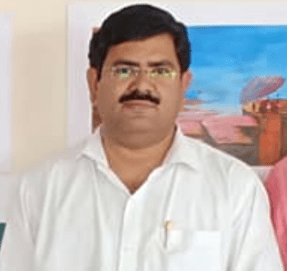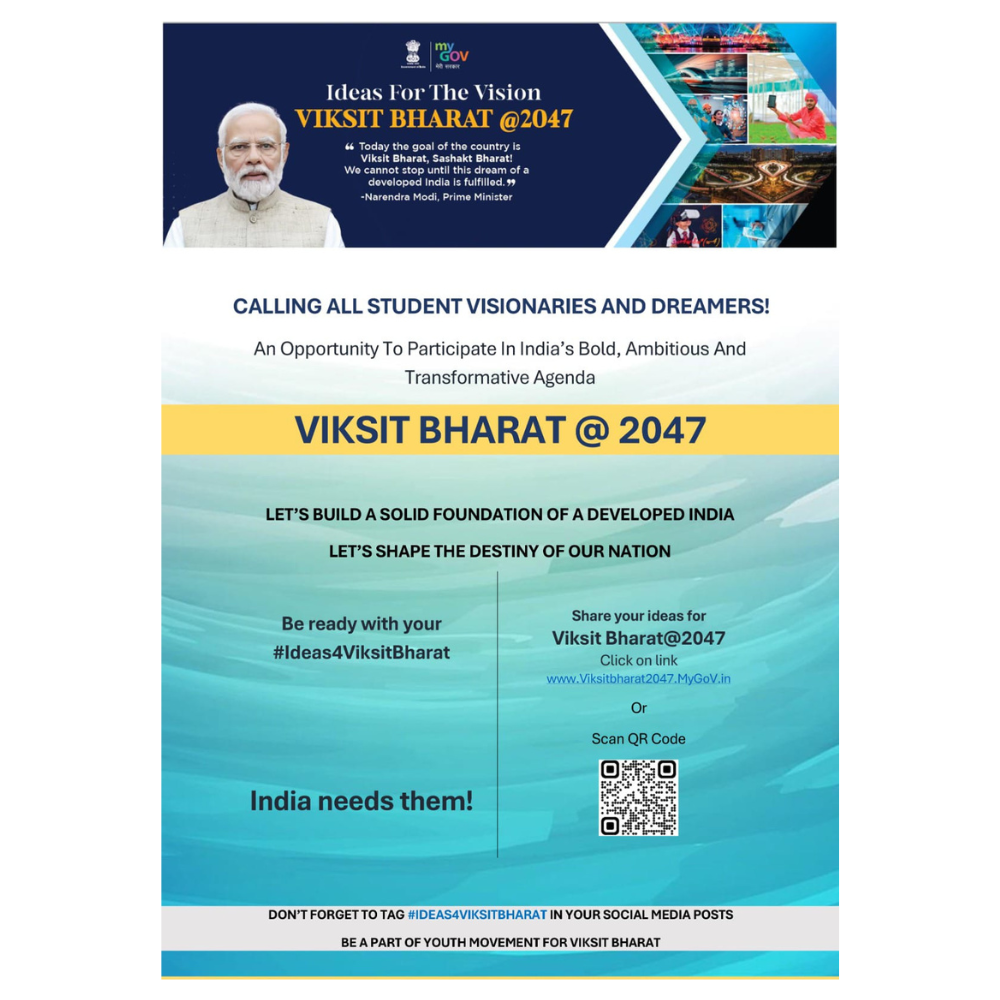
- ravikantdr@cusb.ac.in
- edu.ravikant@gmail.com
- :
Area of Interests :
Educational Technology, Educational Psychology, ICT in Education
EXPERIENCE : Dr. Ravi Kant’s major area of teaching and research are Educational Technology, ICT in Education and Educational Psychology.
He has more than thirteen years of teaching experience at UG, PG including Doctoral level. He has participated in several national seminars and conferences in the capacity of participants as well as resource person. He has published more 30 research papers in different journals which are spread among more than 13 countries. These papers are published in globally accepted database like SCOPUS, Web of Science, EBSCO, ERIC etc. with h-index and i-10-index of citations in the journal of International and National repute. One sponsored project namely “Emotional Labour and Burnout among Teacher Educator of Gaya District” is also in his academic credit. He also contributed several e-content and MOOCs to the National agencies like NIOS, National Resource Centre CUSB etc.
Beside above, he is active member of editorial board and review board of several International and National journals. Peer review is indexed in International data base i.e. Web of Science. He is also performed responsibilities as course coordinator of D.Ed. course offered by NIOS. Additionally he is also associated with different universities with academic and administrative responsibilities. Presently he is also working on the online behaviour and pattern of the higher education’s students.
- Explored the relationship between emotional labour and burnout of teacher educators and found emotional labour as a significant predictor of burnout.
- Extensively worked on emotional intelligence of teacher as well as of students with their different personality’s aspects. Research highlights that emotional intelligence is affecting by the different demographical aspects of teachers and students.
- Studies on the effect of Television viewing habits on the behaviour of students explored that Television viewing is affecting the creativity of the students and it is also slightly but not significantly increasing the aggression behaviour of the male students.
- Also explored the Internet Addiction and Social Media Addiction among students of different levels and found that students are addicted towards the use of Internet and Social Media.
- Publications
- Kant, R. (2011) A Study Of Teaching Aptitude And Responsibility Feeling Of Secondary School Teachers In Relation To Their Sex And Locale. Academic Research International, 1(2):254-259 (Pakistan)
- Lenka, S. K. & Kant, R. (2012) A Study of Academic Anxiety of Special Need’s Children in Special Reference to Hearing Impaired and Learning Disabled. Zenith International Journal of Multidisciplinary Research, 2(2):64-72
- Lenka, S. K. & Kant, R. (2012) Emotional Intelligence of Secondary School Teachers In Relation To Their Professional Development. Asian Journal of Management Science and Education, 1(1):90-101 (Japan)
- Lenka, S. K. & Kant, R. (2012) Frustration and Work Motivation of Secondary School Teachers as a Correlate of Leadership Behavior of Their Heads. Academic Research International, 2(3):321-328 (Pakistan)
- Kant, R. (2012) Television and Creativity. Online International Interdisciplinary Research Journal, 2(2):40-44
- Lenka, S. K. & Kant, R. (2012) A study of effect of parental participation on academic attainment of secondary school students. European Journal of Social Sciences, 33(4):517-524 (Seychelles)
- Kant, R. (2012) Idiot box vs. intelligent box. Scholarly Research Journal for Interdisciplinary Studies1(2):190-196
- Kant, R. (2012) A Study of Creativity of Secondary School Children as a Correlate of Some Television Viewing Habits. International Journal of Modern Education and Computer Science, 10:33-39 (Hong Kong) DOI: 10.5815/ijmecs.2012.10.05.
- Lenka, S. K. & Kant, R. (2012) A Study of Attitude and Perception of the Learners towards Distance Education In Relation To Their Biographical Factor. Turkish Online Journal of Distance Education-TOJDE, 13(4):236-244 (Turkey)
- Lenka, S. K. & Kant, R. (2013) Problems of Orthopedically impaired students in relation to their gender, achievement and locality. Journal of Educational and Social Research, 3(2):249-253 DOI:10.5901/jesr.2013.v3n2p249. (Italy)
- Kant, R. & Lenka, S. K. (2013) Does Emotional Intelligence Get Affected From Some Biographical Factors- In Special Reference to Trainee Teachers?” American Journal of Educational Research 1(6):216-220 DOI: 10.12691/education-1-6-8. (USA)
- Kant, R. & Rangannavar, B. (2014) Effect of Administrative Behaviour of School Heads and Some Socio-Psychological Factors on the Organizational Commitment of Secondary School Teachers. International Journal of Educational Research and Technology, 4(3):73-80.
- Kant, R. (2014) A study of emotional intelligence and teaching motivation of secondary school teachers in relation to their gender and stream. Academia Journal of Educational Research, 2(3): 039-043. (Nigeria) DOI: http://dx.doi.org/10.15413/ajer.2013.0150
- Kant, R. (2014) Uses of ICT in Learning Community. Research Matrix,1(8):10-11
- Kant, R. (2014) Assessment of school infrastructure at primary level in Nainital: descriptive analysis. Golden Research Thoughts, 3(11):1-5
- Kant, R. (2014) A Study of Effect of Demographical Factors on Role Performance of Secondary School Teachers in India”, Mevlana International Journal of Education, 4(2):109-112. http://dx.doi.org/10.13054/mije.14.20.4.2 (Turkey)
- Kant, R. (2014) Interrelationship between Personality Traits and Emotional Intelligence of Secondary Teachers in India. International Journal of Evaluation and Research in Education (IJERE), 3(3):158-168. (Malaysia) DOI 10.11591/ijere.v3i3.6145 ERIC Number: EJ1091686
- Kant, R. & Singh, M. D. (2015) Relationship between learning styles and scientific attitude of secondary school students and their achievement in Science subject. Journal of Educational Science and Psychology5(1):1-10 (Romania)
- Kant, R. (2016) Is TV increasing aggression in secondary school students- An Enquiry? Asian Educational Studies 1(1):47-56 DOI http://dx.doi.org/10.20849/aes.v1i1.31 (Singapore)
- Kant, R. (2016) Use of mobile phone by students: practices & attitude, Review of Research Journal, 5(6):1-7
- Kant, R. (2016) Relationship between attitude towards using new technologies and teaching effectiveness, International Journal of Research Studies in Educational Technology, 5(2):61-69 DOI: 10.5861/ijrset.2016.1564 (Philippines)
- Lenka, S. K. & Kant, R. (2016) A Study of Educational Aspiration of Special Needs Students in Relation to Some Factors, Global Journals of Human-Social Science, 16(5):1-5. (USA)
- Kant, R. (2017) Organizational Health of secondary school teachers in relation to their Adjustment, Journal of Educational and Psychological Sciences, 3(45):63-72 (Georgia)
- Kant, R. (2017) Microteaching: attitude and perception of students and teacher educators, International Journal of Current Research, 9(9):58385-58388.
- Kant, R. (2018) Whatsapp usage: attitude and perceptions of college students, Conflux Journal of Current Research, 5(9):27-34.
- Kant, R. (2018) Relationship of internet addiction with emotional intelligence among youths, GESJ: Education Science and Psychology, 2(48):39-47 (Georgia)
- Kant, R. (2018) Knowledge of Internet and its Applications: A Survey of Secondary Students in Bihar, Greener Journal of Educational Research, 8(6):137-142 (USA) http://doi.org/10.15580/GJER.2018.6.080818113
- Kant, R. (2019) Exploring Internet Addiction on University’s Students: A Study Of Central University Of South Bihar, Gaya, Research and Reflections on Education, 17(3):1-7
- Kant, R. (2019). Emotional intelligence: A study on university students, Journal of Education and Learning (EduLearn) 13(4):441~446. DOI: 10.11591/edulearn.v13i4.13592 (Malaysia)
- Kant, R. (2020) Social Media: Attraction or Addiction?, Asia Pacific Journal of Education, Arts and Sciences, 7(1):1-7 (Philippines)
- Kant, R. (2020) Mulya aur Shiksha (मूल्य और शिक्षा ), Drishikon (दृष्टिकोण), 12(6):209-212
- Kant, R. (2021) Internet Addiction and Emotional Intelligence: An Exploration among University’s students, GESJ: Education Science and Psychology, 2(59):3-9 (Georgia)
- Kant, R. (2021) Osho aur Nai Shikssha ka svaroop (ओशो और नई शिक्षा का स्वरूप), आलोचन दृष्टि, 21:131-134
- Kant, R. & Shanker, A. (2021) Relationship between Emotional intelligence and Burnout: An empirical investigation of Teacher Educators, International Journal of Evaluation and Research in Education (IJERE), 10(3):966-975 (Indonesia)
- Shanker, A. & Kant, R. (2021). Accessibility of Assistive Technology for Inclusion of Differently Abled Students, Aalochan Drishti, 6(22), 219-222
- Kant, R. (2021) COVID-19 Pandemic: Looking in the mind of students during lockdown, Pacific International Journal (Pakistan) Accepted for Publication.
- Kant, R. (2012) Creativity and Television- A Descriptive Survey. Germany: Lambert Academic Publishing, p-238. ISBN: 978-3-8473-0752-5,
- Kour, G. & Kant, R. (2016) Teacher as a Counsellor. R.Lall Book Depot, Meerut. p-362, ISBN- 978-93-85960-55-9
- Kant, R. & Mansoori, I. (2016) Pedagogy of school subject Social science. R.Lall Book Depot, Meerut. p-332 ISBN- 978-93-85960-40-6
- Lenka, S. K. & Kant, R. (2013) Pracheen Bharat main Shikshak shiksha ka udvhava va prasar” In Shukla, S. (Ed.) Adhyapak Shiksha ke Badalte Aayam, India: HP Bhargava Book House ISBN 978-93-80346-99-1
- Kant, R. (2015) ICT in Education IN Higher Education: Emerging Issues and Concerns. APH Publishing Corporation, New Delhi. ISBN: 978-93-313-2703-1
- Kant, R. (2021) Learning Experiences in Online Classes during COVID-19 Lockdown: As study of University students IN the Unforeseen and The Innovations. Ashish Books, New Delhi. ISBN: 978-93-91979-19-5
- Awards:
- Projects:
Awarded by Junior Research Fellowship by University Grant Commission, New Delhi in December 2005 (not availed)
A Research Project (Emotional Labour and Burnout among Teacher Educators of Gaya District) funded by School of Education, Central University of Kerala under PMMMNMTT. [Tenure- 12 Months, Budget- 1.5 Lakhs] (Completed)
- More than one year experience of teaching B.Ed. at Haldwani from 01.02.2006 to 13.04.2007.
- More than four year experience of teaching B.Ed. and M.Ed. at Teerthankar Mahaveer University, Moradabad from 24.4.2007 to 31-01-2012.
- Worked as a counselor in IGNOU at study center, Govt. Raza P.G. College, Rampur from Jan. 2009 to Jan.2012.
- Worked as Assistant Professor at MANUU, College of Teacher Education, Darbhanga from 06.02.2012 to 14.12.2016.
- Working as Associate Professor, School of Education, Central University of South Bihar, Gaya from 15.12.2016 to till date.











